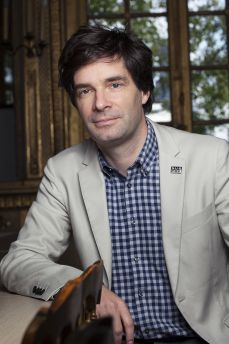Marco Nievergelt

dates de séjour
discipline
Fonction d’origine
Institution d’origine
Fonction actuelle
Institution actuelle
pays d'origine
projet de recherche
Allegory, Hermeneutics and Epistemology
The project discusses the tradition of narrative, vernacular dream-allegory as a mode of philosophical and epistemological speculation. The tradition is sparked by the hugely influential Roman de la Rose, written in Paris in 1260-70 during one of the most important phases of western intellectual history, and clearly responding to a number of scholastic debates. The exact nature and significance of this relation, however, continues to elude us, not least because of the intricacy of scholastic debates themselves, and the deliberate evasiveness of the playful Rose. Our inability to define the philosophical relevance of this type of allegory, however, is also to a large extent a product of artificial, modern disciplinary separation, which struggles to account for the liveliness and exuberance of philosophical experimentation in the period, often taking place on the margins or beyond strictly scholastic, institutional circles. The project thus explores how vernacular literary forms employ, transform, interrogate or satirise scholastic methods of inquiry, seeking to find new, institutionally less constricting forms of speculative enquiry on matters like linguistic signification, interpretation and cognition. The main works examined are the Roman de la Rose itself (1260-70); Guillaume de Deguileville’s allegorical pilgrimage trilogy (1330-60), and William Langland’s Piers Plowman (1360-1390).
biographie
Marco Nievelgelt is Senior Teaching Fellow and Director of Graduate Studies Centre for the Study of the Renaissance, University of Warwick. Marco Nievergelt holds a Dphil in English from the University of Oxford. Previously he was an SNF Research Fellow in the English Department at the University of Lausanne, Switzerland. He specialises in medieval and early modern literature, and is research interests include: allegory, medieval and modern; medieval theories of signification, perception and interpretation; the interactions between scholastic philosophy and literature in the later middle ages; the reception and translation of continental literature, particularly French, in England; chivalric literature and romances; late medieval crusading and ideas of holy war; the history of (textual) subjectivity and self-representation in transition between the later Middle Ages and the early modern period.







